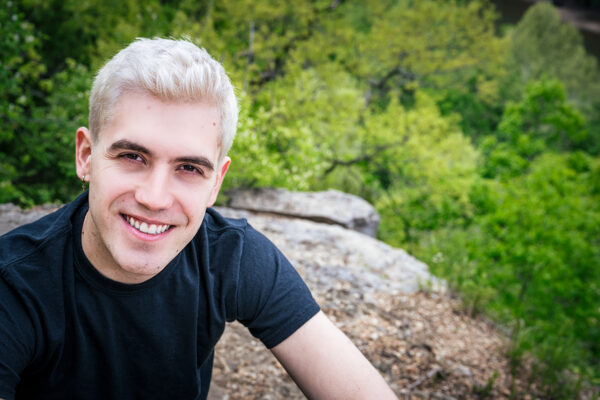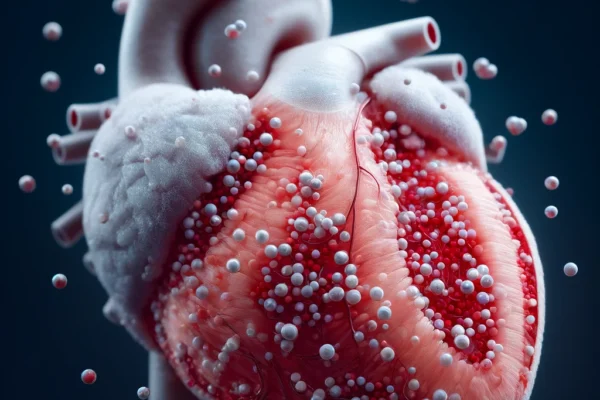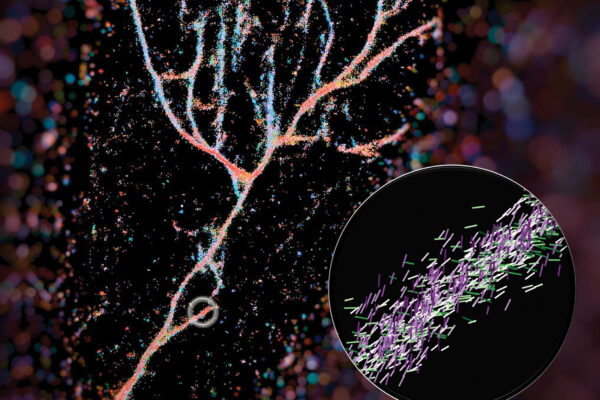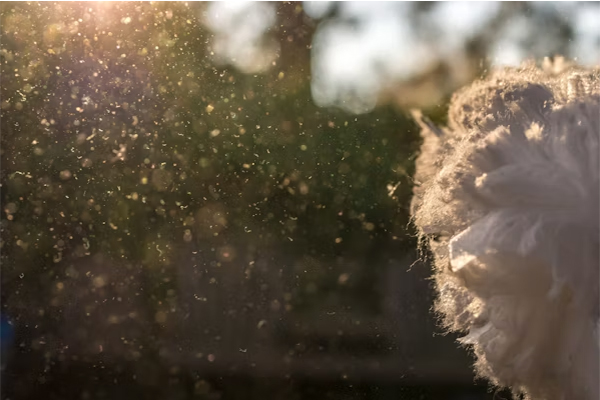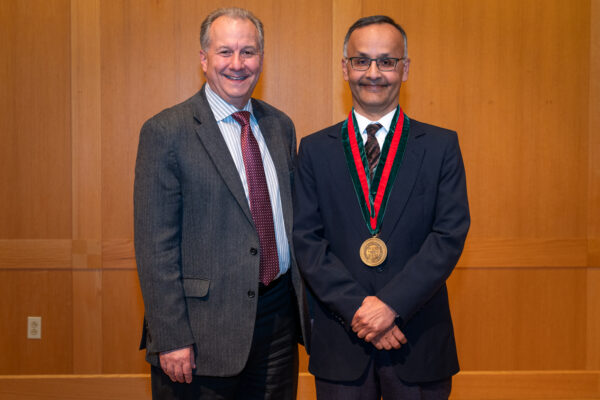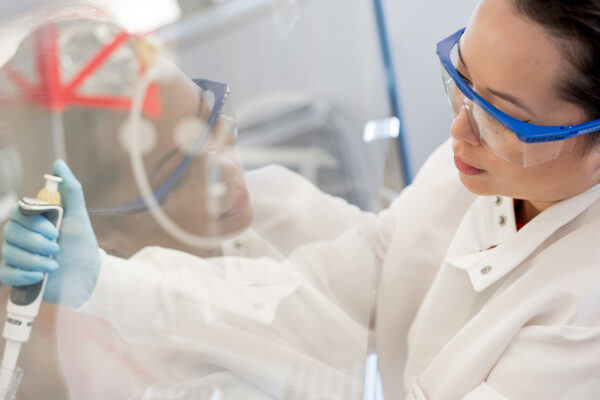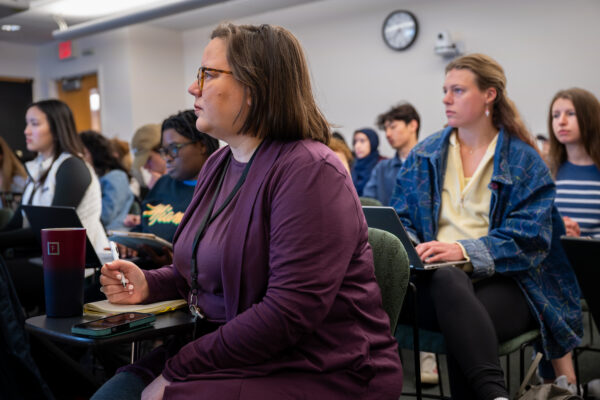Class Acts: Guinter Dame Vogg
As an undergraduate researcher at Washington University in St. Louis’ Atmospheric Composition Analysis Group, Guinter Dame Vogg analyzed air filters from around the globe for PM2.5, the microscopic particles that cause millions of premature deaths every year. What he saw changed his life.
Smart nanoparticles may be able to deliver drugs to heart after heart attack
Jianjun Guan, a materials scientist in the McKelvey School of Engineering at Washington University in St. Louis, received a four-year more than $2 million grant from the National Institutes of Health (NIH) to design a system of nanoparticles that deliver drugs after a heart attack much more effectively than current methods allow.
Imaging technique shows new details of peptide structures
In a paper published in ACS Nano, researchers at Washington University in St. Louis outline how they used a chemical probe to light up interlocking peptides. Their technique will help scientists differentiate synthetic peptides from toxic types found in Alzheimer’s disease.
Role of dust on indoor environmental air quality gets closer look
Jenna Ditto, an assistant professor of energy, environmental and chemical engineering in the McKelvey School of Engineering at Washington University, is taking a closer look at the chemistry of indoor dust with a three-year $453,000 grant from the National Science Foundation.
Novel material supercharges innovation in electrostatic energy storage
Sang-Hoon Bae, a researcher at Washington University, has developed artificial heterostructures made of freestanding 2D and 3D membranes that have an energy density up to 19 times higher than commercially available capacitors.
DeFake tool protects voice recordings from cybercriminals
Ning Zhang, an assistant professor of computer science and engineering in the McKelvey School of Engineering at Washington University, one of three winners of the FTC’s Voice Cloning Challenge, talks about the technology he created.
Global study reveals health impacts of airborne trace elements
Researchers at Washington University , led by Randall Martin, investigated global particulate matter, revealing health risks from trace elements.
Baruah named Hugo F. & Ina Champ Urbauer Professor
Sanjoy Baruah, an expert in scheduling theory and safety-critical system design, has been named the Hugo F. & Ina Champ Urbauer Professor at the McKelvey School of Engineering.
Women deserve better health care. Engineers can help.
Pressure. Contraction. Pushing. Rupture. For many, these words point to the experience of labor and childbirth. For Michelle Oyen, something else also comes to mind. “These are all very clearly engineering words that have to do with physical forces,” says Oyen, associate professor of biomedical engineering in the McKelvey School of Engineering. “We’ve been treating […]
Solving women’s health issues through engineering focus of course
Women’s health has been getting a new focus in recent years from the local to the federal level, with President Joe Biden recently launching initiatives to boost federally funded research in this long-overlooked area. That focus is also active at the McKelvey School of Engineering, where a new elective course is filled with students interested in how they can use engineering to solve problems in women’s health.
View More Stories
